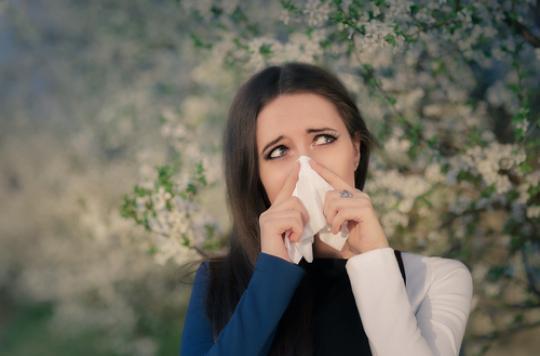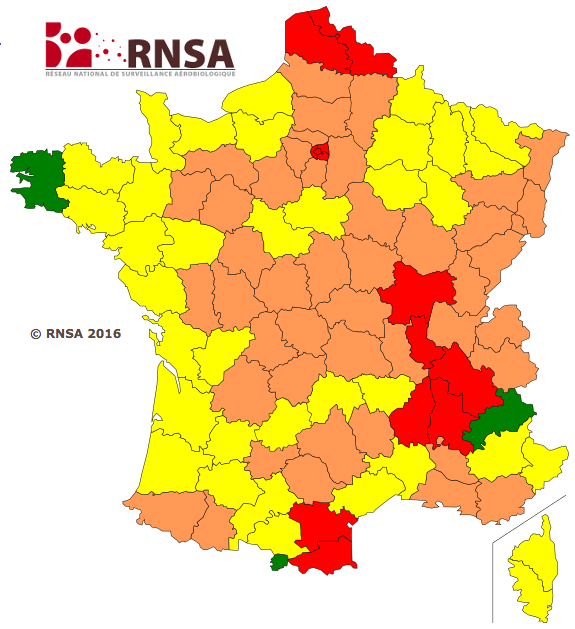Birch and plane tree pollens will split France in two until April 15. This is what emerges from the latest RNSA allergo-pollenic bulletin which prevents allergic people.

A stuffy and runny nose, sneezing, itching, conjunctivitis, the allergy season has started in France. The much-heralded birch pollens have finally arrived. In his last allergo-pollen bulletin published on Friday, the National Aerobiological Surveillance Network (RNSA) indicates that they are present from the North of the Garonne to Alsace, taking advantage of each sunny period to spread.
“If the allergic risk will still be average on the coasts of the Atlantic and the English Channel, it will quickly become” high “in the rest of this area or even” very high “, as in the Rhône-Alpes region or the Paris region” , warns the Network. Until Friday April 15, “Birch pollens will also be present south of this limit but with a lower allergic risk,” he explains.
Lyon also affected by the plane tree
But birch pollens will not be the only ones to attack France, those of plane trees will dominate in the south of the territory of Aquitaine on the Côte d’Azur, “the associated allergic risk will be medium to locally high”.
According to Charlotte Sindt, director of the RNSA, these pollens will be on the rise over the rest of France, reaching Alsace through the Rhône valley and up along the Atlantic coast. “The allergic risk will be very low to low, but may in some cities reach an average level as in Lyon,” she underlines.
Charming pollens are spread over the entire territory, the quantities present will be significant, the allergic risk will be low to locally average.
And cypress pollens still cling to the Mediterranean rim, with an average allergic risk.
Waiting for saving rains
For their part, oak pollen will continue to grow, still located mainly in the southern half of the territory, the associated allergic risk may reach an average level in Aquitaine.
Finally, grass pollens should be monitored. Already present in many regions without real discomfort while the weather is mixed, they can quickly progress in the Aquitaine region if the sun persists for several days. Parietary pollens are spread over the Mediterranean area, the allergic risk may reach an average level.
“Allergics must remain vigilant, only long periods of rain will be able to relieve them of pollens”, concludes the RNSA.


Source: RNSA
.

















